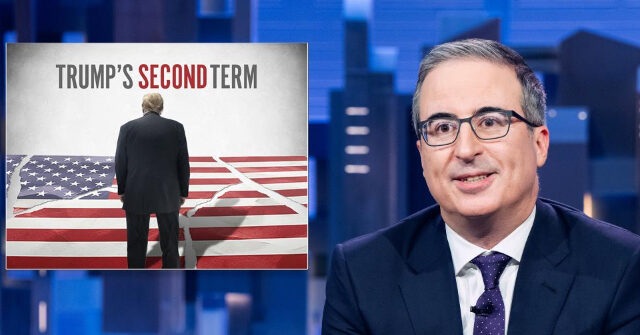In a recent episode of HBO’s Last Week Tonight, host John Oliver characterized former President Donald Trump as an “active threat,” a statement that has attracted significant attention and backlash. During his emotional monologue, Oliver expressed a deep-seated hope for a world where Trump would be merely an annoyance rather than a danger, imploring his viewers to support Kamala Harris in the upcoming election. He framed Trump’s political ambitions as nefarious and underscored his intent to galvanize public sentiment against the former president, advocating for a decisive electoral defeat that would ideally put an end to Trump’s political antics.
Throughout the monologue, Oliver also made derogatory statements about other political figures, including Robert F. Kennedy Jr. and country musician Lee Greenwood. He directed particular vitriol towards Latino voters who support Trump, labeling them “absolute dipshits.” This inflammatory rhetoric illustrates a growing trend in media discourse, particularly among those in the entertainment industry, where provocative comments seem to serve as a rallying cry for increased political engagement against Trump. Oliver’s comments reflect a broader fear among many Democrats about Trump’s potential resurgence in future elections.
As Oliver’s monologue progressed, he suggested that although Trump’s presence in politics might be indicative of deeper societal issues, the prospect of losing him from active political life should be met with relief. He painted a picture of a future political landscape devoid of Trump’s influence, claiming that after losing two consecutive elections, Trump would become less of a threat. The studio audience responded positively, echoing Oliver’s sentiments as they cheered the idea of moving beyond the Trump era and tackling the systemic problems that have allowed his political style to flourish.
The timing of Oliver’s remarks coincides with a broader media narrative that has increasingly framed Trump in extreme terms, often likening him to historic tyrants like Adolf Hitler. Just days before this episode aired, a Trump rally at Madison Square Garden drew comparisons to Nazi rallies from the 1930s, a characterization amplified by various media outlets, including MSNBC, and prominent Democrats. Such inflammatory language appears to be part of a strategy to mobilize voter sentiment by constructing a highly negative image of Trump, aimed at ensuring his political defeat.
The backdrop of these comments includes a climate of heightened anxiety surrounding Trump, especially after he reportedly survived two assassination attempts. The media’s relentless focus on elevating the rhetoric around Trump as a dangerous figure could further polarize public opinion and incite extreme reactions among his detractors and supporters alike. This cycle of outrage raises questions about the responsibilities of media figures and their influence over political discourse, particularly in a landscape that has become increasingly divided.
As the November 5 election approaches, it is clear that the rhetoric surrounding Trump will continue to escalate. John Oliver’s comments, alongside similar media narratives, represent a concerted effort by elements of the corporate media and entertainment industry to combat Trump’s influence in politics. While their aim is to encourage voting and political engagement among those who oppose Trump, the potential consequences of such incendiary rhetoric cannot be overlooked, suggesting the continued risk of increased polarization and violence in an already tense political climate.

